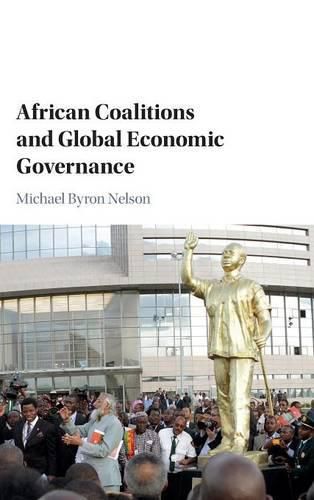Readings Newsletter
Become a Readings Member to make your shopping experience even easier.
Sign in or sign up for free!
You’re not far away from qualifying for FREE standard shipping within Australia
You’ve qualified for FREE standard shipping within Australia
The cart is loading…






The proliferation of international institutions with overlapping scope and authority over issue areas creates strategic dilemmas for all states. While African states are often considered marginalised in world politics and global markets, Michael Byron Nelson shows how coalitions can form a crucial part of African strategies to influence international institutions and achieve results. Building a bottom-up analysis of global governance, through legal analysis, content analysis, and in-depth interviews, Nelson illuminates institutional and coalition dynamics through case studies of three key areas - food safety, intellectual property, and agricultural trade. He highlights the difficulties encountered by coalitions attempting to navigate institutional systems, emerging from institutional thickness (increasing the number of institutions involved) and integration (increasing the formal linkages between those institutions). Finally, Nelson shows how increasing the hierarchy of an institutional system, by creating a focal point on a single institution, can make coordination easier for coalitions.
$9.00 standard shipping within Australia
FREE standard shipping within Australia for orders over $100.00
Express & International shipping calculated at checkout
The proliferation of international institutions with overlapping scope and authority over issue areas creates strategic dilemmas for all states. While African states are often considered marginalised in world politics and global markets, Michael Byron Nelson shows how coalitions can form a crucial part of African strategies to influence international institutions and achieve results. Building a bottom-up analysis of global governance, through legal analysis, content analysis, and in-depth interviews, Nelson illuminates institutional and coalition dynamics through case studies of three key areas - food safety, intellectual property, and agricultural trade. He highlights the difficulties encountered by coalitions attempting to navigate institutional systems, emerging from institutional thickness (increasing the number of institutions involved) and integration (increasing the formal linkages between those institutions). Finally, Nelson shows how increasing the hierarchy of an institutional system, by creating a focal point on a single institution, can make coordination easier for coalitions.